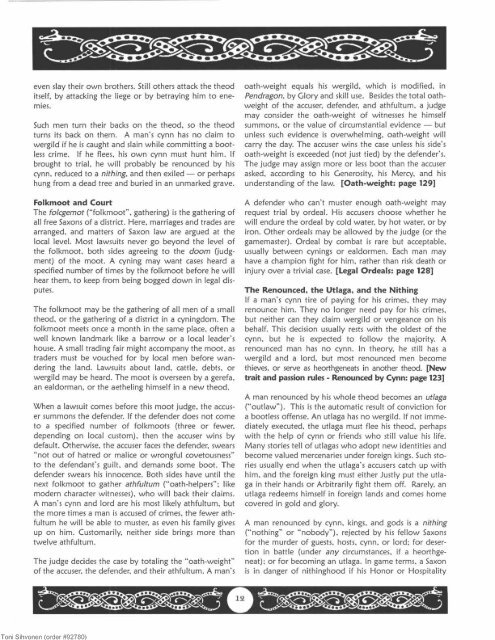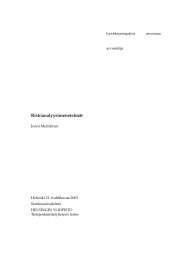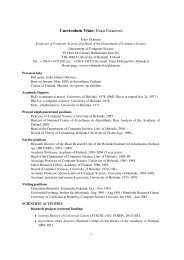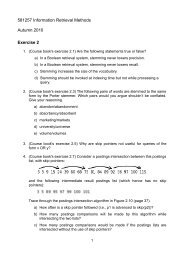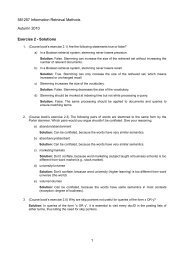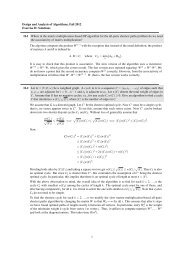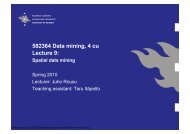Toni Sihvonen (order #92780) 62.142.248.1
Toni Sihvonen (order #92780) 62.142.248.1
Toni Sihvonen (order #92780) 62.142.248.1
You also want an ePaper? Increase the reach of your titles
YUMPU automatically turns print PDFs into web optimized ePapers that Google loves.
<strong>Toni</strong> <strong>Sihvonen</strong> (<strong>order</strong> <strong>#92780</strong>) 6<br />
even slay their own brothers. Still others attack the theod<br />
itself, by attacking the liege or by betraying him to enemies.<br />
Such men turn their backs on the theod, so the theod<br />
turns its back on them. A man’s cynn has no claim to<br />
wergild if he is caught and slain while committing a bootless<br />
crime. If he flees, his own cynn must hunt him. If<br />
brought to trial, he will probably be renounced by his<br />
cynn, reduced to a nithing, and then exiled - or perhaps<br />
hung from a dead tree and buried in an unmarked grave.<br />
Folkmoot and Court<br />
The folcgemot (“folkmoot”, gathering) is the gathering of<br />
all free Saxons of a district. Here, marriages and trades are<br />
arranged, and matters of Saxon law are argued at the<br />
local level. Most lawsuits never go beyond the level of<br />
the folkmoot, both sides agreeing to the doom (judgment)<br />
of the moot. A cyning may want cases heard a<br />
specified number of times by the folkmoot before he will<br />
hear them, to keep from being bogged down in legal disputes.<br />
The folkmoot may be the gathering of all men of a small<br />
theod, or the gathering of a district in a cyningdom. The<br />
folkmoot meets once a month in the same place, often a<br />
well known landmark like a barrow or a local leader’s<br />
house. A small trading fair might accompany the moot, as<br />
traders must be vouched for by local men before wandering<br />
the land. Lawsuits about land, cattle, debts, or<br />
wergild may be heard. The moot is overseen by a gerefa,<br />
an ealdorman, or the aetheling himself in a new theod.<br />
When a lawsuit comes before this moot judge, the accuser<br />
summons the defender. If the defender does not come<br />
to a specified number of folkmoots (three or fewer,<br />
depending on local custom), then the accuser wins by<br />
default. Otherwise, the accuser faces the defender, swears<br />
“not out of hatred or malice or wrongful covetousness”<br />
to the defendant’s guilt, and demands some boot. The<br />
defender swears his innocence. Both sides have until the<br />
next folkmoot to gather athfultum (“oath-helpers”: like<br />
modern character witnesses), who will back their claims.<br />
A man’s cynn and lord are his most likely athfultum, but<br />
the more times a man is accused of crimes, the fewer athfultum<br />
he will be able to muster, as even his family gives<br />
up on him. Customarily, neither side brings more than<br />
twelve athfultum.<br />
The judge decides the case by totaling the “oath-weight”<br />
of the accuser, the defender, and their athfultum. A man’s<br />
oath-weight equals his wergild, which is modified, in<br />
Pendragon, by Glory and skill use. Besides the total oathweight<br />
of the accuser, defender, and athfultum, a judge<br />
may consider the oath-weight of witnesses he himself<br />
summons, or the value of circumstantial evidence - but<br />
unless such evidence is overwhelming, oath-weight will<br />
carry the day. The accuser wins the case unless his side’s<br />
oath-weight is exceeded (not just tied) by the defender’s.<br />
The judge may assign more or less boot than the accuser<br />
asked, according to his Generosity, his Mercy, and his<br />
understanding of the law. [Oath-weight: page 1291<br />
A defender who can’t muster enough oath-weight may<br />
request trial by ordeal. His accusers choose whether he<br />
will endure the ordeal by cold water, by hot water, or by<br />
iron. Other ordeals may be allowed by the judge (or the<br />
gamemaster). Ordeal by combat is rare but acceptable,<br />
usually between cynings or ealdormen. Each man may<br />
have a champion fight for him, rather than risk death or<br />
injury over a trivial case. [Legal Ordeals: page 1281<br />
The Renounced, the Utlaga, and the Nithing<br />
If a man’s cynn tire of paying for his crimes, they may<br />
renounce him. They no longer need pay for his crimes,<br />
but neither can they claim wergild or vengeance on his<br />
behalf. This decision usually rests with the oldest of the<br />
cynn, but he is expected to follow the majority. A<br />
renounced man has no cynn. In theory, he still has a<br />
wergild and a lord, but most renounced men become<br />
thieves, or serve as heorthgeneats in another theod. [New<br />
trait and passion rules - Renounced by Cynn: page 1231<br />
A man renounced by his whole theod becomes an utlaga<br />
(“outlaw”). This is the automatic result of conviction for<br />
a bootless offense. An utlaga has no wergild. If not immediately<br />
executed, the utlaga must flee his theod, perhaps<br />
with the help of cynn or friends who still value his life.<br />
Many stories tell of utlagas who adopt new identities and<br />
become valued mercenaries under foreign kings. Such stories<br />
usually end when the utlaga’s accusers catch up with<br />
him, and the foreign king must either Justly put the utlaga<br />
in their hands or Arbitrarily fight them off. Rarely, an<br />
utlaga redeems himself in foreign lands and comes home<br />
covered in gold and glory.<br />
A man renounced by cynn, kings, and gods is a nithing<br />
(“nothing” or “nobody”), rejected by his fellow Saxons<br />
for the murder of guests, hosts, cynn, or lord: for desertion<br />
in battle (under any circumstances, if a heorthgeneat):<br />
or for becoming an utlaga. In game terms, a Saxon<br />
is in danger of nithinghood if his Honor or Hospitality


